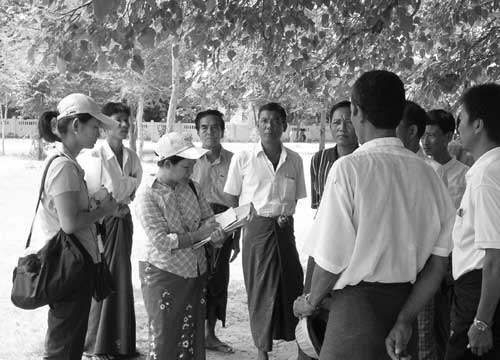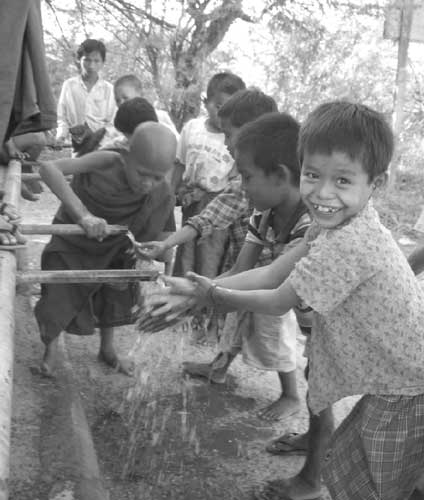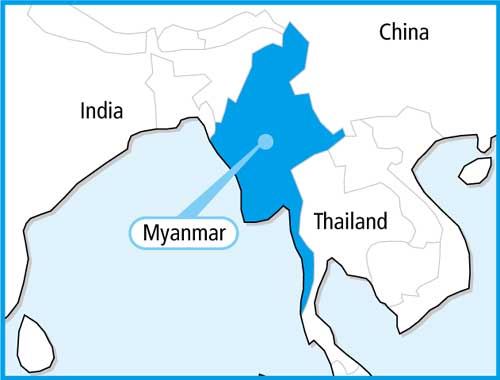Japan's Official Development Assistance White Paper 2008
—Construction of 100 Wells in Myanmar—
There is a saying "water is more precious than gold." The central dry region in Myanmar is home to around 15,000 villages with about 6 million residents. Many struggle on a daily basis to get enough water to live and survive.
Bridge Asia Japan (BAJ) is a non-governmental organization (NGO) that has been supporting the local communities to dig wells since 1999, helped in part by the Grant Assistance for Japanese NGO Projects, a program provided by the Government of Japan. BAJ's program manager Akiko Mori moved into the region in 2006, and has been promoting activities on site since then. "The water situation is worst between January and May, toward the end of the dry season. The reservoirs for rain water dry up, leaving the residents of villages without wells with no choice but to go to distant water sources either on foot or by ox carriage. This burden mainly falls to women and children. What's more, they must often rely on moonlight to make the journey, and cattle used to carry water must be away from their crucial job of cultivating the field. The residents dearly wish for the realization of 'one well for one village'" said Ms. Mori.

Ms. Mori (left) attending an opinion sharing meeting (Source: Ms. Mori)
One particular difficulty for digging wells in this region is the depth of the water table, which sometimes makes it necessary to dig as deep as 200 to 300 meters to reach the water. It requires a large-scale excavator and preliminary surveys on the underground water, along with significant financing. At the beginning, BAJ utilized its existing excavator only, but in 2006 a donation from Watabe Wedding, a private company in Japan, brought the site a new excavator.
By the end of 2008, BAJ is expected to have dug a total of 100 new wells, as well as restoring another 100 old wells. Relieved from the arduous task of fetching water, the local people are overjoyed to be able to spend more time with their families.
BAJ also promotes opportunities for the local people to engage in technical training and to share opinions, in order to encourage their participation in maintaining the wells, and this has resulted in a growing awareness among the residents that they own the well.
For example, in order to keep their well available for use, the residents need to cover the costs of the fuel to run the pump engine as well as maintenance. The residents of each village have organized their own water management committees, with cooperation from BAJ, to handle these matters. The committee collects fees from the users of the well and jointly manages the money. Some villages were even able to use some surplus proceeds to carry out repairs to their schools.
"We hope to create a foundation for the residents to reach their maximum potential, rather than aiming for a Japanese organization to continue offering aid," said Ms. Mori. "A growing number of communities are now able to operate and maintain their wells without the help of BAJ."

Children overjoyed at having water (Source: Ms. Mori)



 Next Page
Next Page